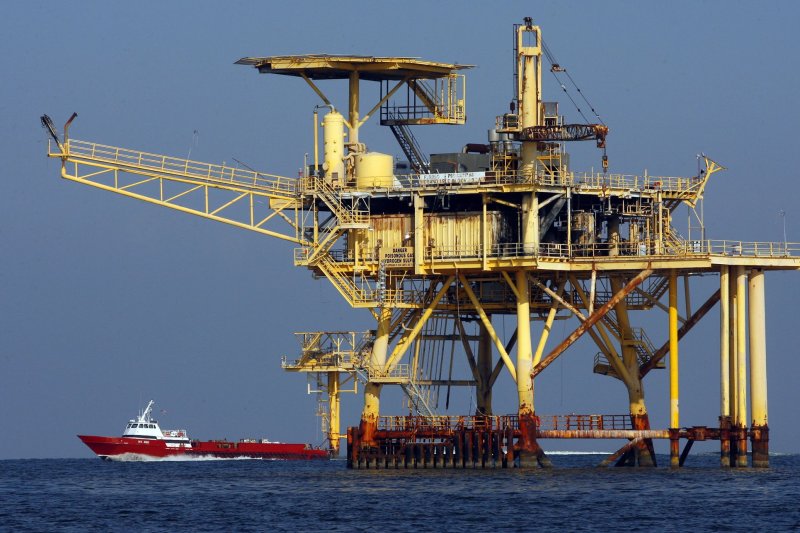An OPEC committee monitoring its own balancing act said compliance is supported by those countries doing more than necessary. File photo by A.J. Sisco/UPI |
License Photo
Feb. 22 (UPI) -- Compliance with the OPEC-led effort to balance the market with production cuts was supported by "several over-performing countries," a committee said.
The Organization of Petroleum Exporting Countries, with support from non-member states like Russia, are in year two of an effort to drain a surplus from the five-year average of crude oil inventories held by the world's leading economies through coordinated production cuts.
A committee monitoring the agreement, led in part by Russia, said conformity in January was over 100 percent. The effort has been credited with setting a $50 per barrel floor under the price of crude oil, but has been offset somewhat by steady gains in U.S. shale oil production.
The joint monitoring committee said that, so far, it was satisfied with the overall results, but took note of volatility in the price of crude oil since the start of the year. The price for Brent crude oil, the global benchmark, closed above $71 per barrel in late January, supported by optimism over the OPEC effort and a geopolitical risk premium.
The price for Brent was closer to $65 per barrel early Thursday, with some analysts wondering if this range marks the new ceiling. Broader commodity markets have followed equities, which went through a correction period in early February.
On overall compliance, the OPEC monitoring committee said support was mixed among parties to the agreement. Performance isn't uniform and conformity is limited to those doing more than necessary.
Five of the 14 members of OPEC saw gains in production from December to January, according to secondary sources reporting to OPEC economists. In terms of gains by volume, Iraq reported the highest increase with January levels up 30,000 barrels to 4.4 million barrels per day. In terms of percentage, Libya gained the most with its 978,000 barrels per day average in January, marking a 2 percent improvement from December.
Total compliance remains firm, with the average of 32.3 million barrels per day for all OPEC members in January below the agreed ceiling of 32.7 million barrels per day. In part because of sanctions and funding pressures, Venezuela's production is down the most for any OPEC member and skewing the compliance somewhat.















